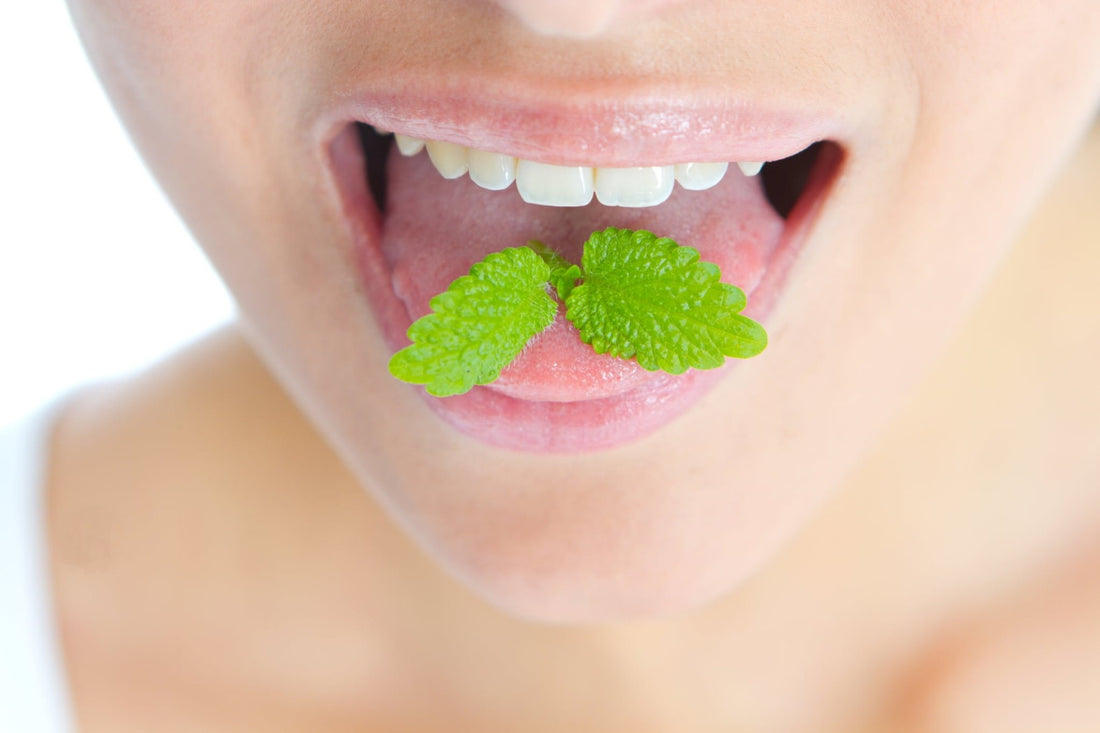9 Foods That Can Cause Bad Breath

9 Foods That Can Cause Bad Breath - Enzim Singapore
Popularly recognised offenders like onions, garlic, jengkol, petai, and durian are well-known for causing bad breath, but there are additional foods that may surprise you with their odour-causing effects.
Here’s a comprehensive look at nine foods that can contribute to bad breath, why they have this effect, and how using an enzyme-based toothpaste like Enzim FreshMint can help maintain fresh breath.
1. Red Meat: The Protein Effect
Red meat is rich in protein, which can be difficult for the body to digest completely. As protein breaks down, it releases sulfur-based gases that can be absorbed into the bloodstream and then expelled through the lungs, causing bad breath. Additionally, red meat’s slow digestion can lead to other odours in the form of sweat, which can have a noticeable smell hours after consumption.
2. Garlic and Onions: The Sulfur Connection
Garlic and onions contain sulfur compounds that, while flavourful, release odorous gases during digestion. These sulfur compounds are absorbed into the bloodstream and carried to the lungs, causing a strong, lingering breath odour that is exhaled over several hours. Additionally, these foods contain allyl methyl sulfide, a compound that’s resistant to quick breakdown, which is why the smell often lasts.
3. High-Fiber Vegetables: Gas-Producing Foods
High-fiber foods like beans, lentils, and certain vegetables produce gases like methane, carbon dioxide, and hydrogen during digestion. These gases, while beneficial for gut health, can also cause bloating and a sour smell that’s released through breath and flatulence. The natural digestive process of these fibre-rich foods can add to the overall bad breath experience.
4. Junk Food and Processed Snacks: High in Fat and Difficult to Digest
Junk food is often high in fat and low in nutrients, which can lead to a prolonged digestion process. The body works harder to break down these fatty foods, producing sulfur gases as a byproduct. The increased workload on your digestive system can lead to bad breath, as the excess gases are released through both the digestive tract and lungs.
5. Dairy Products: Lactose Fermentation
While dairy products like milk, cheese, and yoghurt provide essential nutrients, they also contain lactose, a type of sugar that can lead to an overgrowth of bacteria in the mouth. Lactose fermentation in the presence of bacteria produces acids and gases that can cause an unpleasant odour. Without proper oral hygiene, the high protein content in dairy products can react with mouth bacteria, contributing to bad breath.
6. Sweets and Sugary Foods: Feeding the Bacteria
Sugary foods, especially candies and desserts, fuel bacteria in the mouth. When sugar interacts with bacteria, it creates acids and volatile sulfur compounds (VSCs), which are responsible for foul smells. Over time, the accumulation of bacteria fuelled by sugar consumption can lead to cavities and gum issues, both of which can exacerbate bad breath.
7. Eggs: High in Sulfur Compounds
Eggs are rich in protein and sulfur, which contribute to their strong odour. When the protein in eggs interacts with digestive acids, it releases sulfur gases, which can then be expelled through the breath. This process makes eggs a common culprit for bad breath, especially when consumed in large quantities.
8. Coffee: Acidic and Enzyme-Interfering
Coffee is acidic and contains certain natural enzymes that mix with saliva, contributing to bad breath. Additionally, the dehydrating effect of coffee reduces saliva production, creating a dry environment in the mouth where odour-causing bacteria can thrive. As saliva production decreases, the mouth’s natural cleansing mechanism is diminished, leading to a greater buildup of bacteria and bad breath.
9. Spices: Persistent Sulfur Gases
Spices like cumin, curry, and turmeric add flavour but can also contribute to body odour and bad breath. When digested, the sulfur-based compounds in these spices enter the bloodstream and are released through the lungs, causing a distinctive, lingering smell. The intensity of these spices can often remain noticeable hours after consumption.
Managing Bad Breath: Practical Tips and Solutions
If you’re concerned about bad breath, limiting or moderating your intake of these foods can make a difference. However, since these foods are often part of daily meals or favourite dishes, it’s more practical to take proactive steps for oral hygiene that directly target odour-causing bacteria and compounds. Here are some helpful tips:
-
Practice Good Oral Hygiene: Brush your teeth at least twice daily and floss regularly to remove food particles and reduce bacteria buildup.
-
Stay Hydrated: Drinking water helps keep your mouth moist, washing away food particles and diluting acids that lead to bad breath.
-
Avoid Sugary Snacks: Sugar feeds bacteria in the mouth, so limiting sweets can help control bacterial growth.
-
Use an Enzyme-Based Toothpaste: Selecting the right toothpaste can make a significant difference in managing bad breath and supporting overall oral health. Toothpaste with active enzymes like Enzim FreshMint are formulated to maintain the natural balance of bacteria in the mouth and restore saliva quality, ensuring long-lasting, fresh breath.
Why Enzim FreshMint Toothpaste is Effective Against Bad Breath
Unlike conventional toothpaste, Enzim FreshMint contains a unique combination of natural enzymes that work with your saliva to help eliminate odour-causing bacteria and maintain the mouth’s natural bacterial balance. Here’s how it can address the effects of foods known for causing bad breath:
-
Amyloglucosidase and Glucose Oxidase: These enzymes help to break down starches into glucose, which is then converted into antibacterial agents that inhibit the growth of odour-causing bacteria in the mouth. This prevents bacteria from thriving and reduces sulfur compound production, effectively neutralising bad breath at its source.
-
Lactoperoxidase: This enzyme works with the natural components in saliva to produce hypothiocyanite ions, a compound that acts as a mild antiseptic and helps maintain oral health. By supporting the antibacterial properties of saliva, lactoperoxidase ensures a cleaner and healthier oral environment.
-
Lysozyme and Lactoferrin: These proteins offer an additional layer of protection. Lysozyme targets and breaks down bacterial cell walls, while lactoferrin regulates iron levels, inhibiting bacterial growth. Together, these proteins prevent an overgrowth of harmful bacteria and help control the bacterial balance in the mouth, reducing bad breath.
-
Non-SLS Formula: Enzim FreshMint toothpaste is free from sodium lauryl sulfate (SLS), a common foaming agent that can irritate the mouth and reduce saliva production, potentially leading to dry mouth and bad breath. By avoiding SLS, Enzim Fresh Mint is gentler on the mouth and supports a moist environment where healthy saliva production is maintained.
Additional Ingredients for Comprehensive Care
Enzim FreshMint also includes beneficial ingredients like allantoin and zinc gluconate, which provide added protection and promote healing:
-
Allantoin: Known for its healing properties, allantoin helps soothe and heal mouth sores, ulcers, and minor gum irritation, which can be common with bad breath issues.
-
Zinc Gluconate: Zinc neutralises sulfur compounds that contribute to bad breath. This ingredient helps ensure that any residual sulfur gases from odour-causing foods are neutralised before they can affect breath quality.
Using Enzim FreshMint Toothpaste for Optimal Results
For the best results, follow these steps with Enzim FreshMint toothpaste:
-
Brush Twice Daily: Use a pea-sized amount and brush for at least two minutes, covering all areas of the mouth. This ensures maximum contact with the enzymes and other active ingredients that combat bad breath.
-
Allow the Enzymes to Work: After brushing, avoid rinsing your mouth with water immediately. Giving the enzymes a chance to stay in contact with your teeth and gums will maximise their antibacterial effect.
-
Avoid Eating or Drinking for 30 Minutes: This waiting period allows the enzymes to work fully without being disrupted by food or drink.
Enjoy Your Favourite Foods Without Worry
There’s no need to avoid your favourite foods out of concern for bad breath. By choosing a toothpaste that works with the natural defences in your mouth, such as Enzim FreshMint, you can enjoy the benefits of fresh breath and a healthier oral environment. The combination of powerful enzymes and natural ingredients ensures that bad breath is effectively neutralised, allowing you to enjoy your meals without the worry of lingering odours.
With Enzim FreshMint toothpaste, you can confidently face each day knowing that your breath is fresh, and your mouth is well-cared for. After all, oral health is not just a choice—it’s essential for well-being and confidence.
